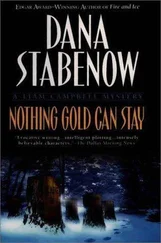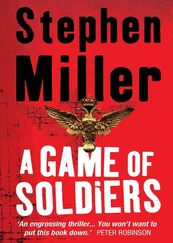Smith was already unhooking the second layer of strapping and was ripping into the crates stacked there. These crates were identified as being shipped to the Mattel Corporation. Fang examined the label more closely in the dim light cast by the flashlight and saw that the crates were supposed to be full of dolls. Instead they yielded hammocks and sleeping bags, chemical toilets, prepackaged foods, a two-burner camp stove, a set of cook pots, bowls and mugs and spoons, a satellite phone, a whole case of batteries for it, decks of cards, and a mah-jongg game.
The crates and boxes were disassembled and stuffed into the space between the cargo and the container. They attached hooks to the walls of the container and slung the hammocks. At Smith’s direction, one of the men unfolded the stove and boiled water for tea and noodles. Fang slurped both down with gratitude, feeling the heat spread into his hands and feet.
Something flapped over his head and he ducked instinctively and looked up. The container had a canvas roof.
He looked at Smith. In a low voice Smith said, “We must be very quiet until we are under way.”
Fang was more concerned about the loss of heat. He claimed one of the hammocks closest to the floor, unrolled a sleeping bag and climbed in without removing his boots. As he was pulling the bag to his chin he noticed a spray of blood extending from the back of his hand to the sleeve of his parka. The cold had already made it tacky to the touch, so he didn’t have to worry about smearing it all over.
They were made aware of the arrival of morning by the increase in noise outside. Smith gave an order and the men secured everything that wasn’t already tied down or tucked behind the cargo straps. A while later the container jolted as a tractor latched on, and the hammocks swung merrily as they moved out of the yard, down the shore road, and rumbled over the wood surface of what was probably a dock.
The sounds of chains jangling were heard, followed by an increase in the pull of gravity when they were hoisted into the air. Men bellowed and somewhere a crane clanked and groaned into action and the container began moving sideways. It stopped, swaying back and forth, and almost immediately began descending. They thudded into something and another voice bellowed. There were answering shouts from the other side of the container walls, and Fang and the rest of the men held themselves quiet and still. More shouting as the container was muscled into position. There was a loud clank as the hoist let go and a series of kachunks, when some kind of fastening kicked in. The voices and the sounds retreated, only to return not much later when the next container was loaded, and the next, and the next.
It continued for six hours. At one in the afternoon the ship shuddered into life, the engines starting with a rumbling roar. The deck vibrated, setting the hammocks to trembling. They got underway an hour later. Five minutes after that the first of Smith’s men threw up.
By six that evening they were in the North Pacific, with seas Fang estimated as well as he could from inside the container running at least fifteen feet. The ship was rolling and pitching and corkscrewing, and it sounded like the screw was out of the water as often as it was in it. The ship’s helmsman wasn’t doing much to compensate, either. Fang foresaw an overhaul in the ship’s engine room in the not too distant future.
By now all of Smith’s men were puking, some of them just hanging their heads over the sides of their hammocks and others taking turns kneeling in front of the portable toilet. The miasma of vomit and sour sweat mingled with the smell of diesel exhaust creeping into the container. It was enough to make even Fang nauseous. He pulled his sleeping bag over his nose and thought again of that plump wife in Shanghai, with a sturdy son he could raise to be a real seaman, with his own shipping line bankrolled by his father.
This was going to be his last trip, he realized, and with the decision made, he felt almost lighthearted. One more trip, and home for good.
Fang curled more tightly ship’s helmsman wasn’t doing much to compensate, either. Fang foresaw an overhaul in the ship’s engine room in the not too distant future.
By now all of Smith’s men were puking, some of them just hanging their heads over the sides of their hammocks and others taking turns kneeling in front of the portable toilet. The miasma of vomit and sour sweat mingled with the smell of diesel exhaust creeping into the container. It was enough to make even Fang nauseous. He pulled his sleeping bag over his nose and thought again of that plump wife in Shanghai, with a sturdy son he could raise to be a real seaman, with his own shipping line bankrolled by his father.
This was going to be his last trip, he realized, and with the decision made, he felt almost lighthearted. One more trip, and home for good.
Fang curled more tightly into his sleeping bag and drifted off to the sleep of the righteous.
DUTCH HARBOR
OH BOARD THE USGG CUTTER SOJOURNER TRUTH
UNDER THE SURE HANDof Chief Edelen the Sojourner Truth sidled away from the dock at Dutch Harbor like a hooker caught by a cop in the act of propositioning a John, only with a lot more style. The sky was gray and so was the attitude of most of the crew.
This had not been the Sojourner Truth’s best port call. Two underage seamen had spent the better part of their first night in port at Tommy’s Elbow Room and most of their second day and night confined to quarters, although most of that had been spent crouched over toilets in the head. Together they had been the proximate cause of three injuries bad enough for the victims to be taken to the hospital and damages to the Elbow Room and a passing pickup truck in excess of five thousand dollars. It was one seaman’s first offense and the other’s second. Ensign Ryan had been the investigating officer. Still smarting from the harangue he had received from the owner of the hotel to which the two seamen had retreated, which harangue repeatedly featured the phrase “fucking Coasties,” his report on the incident had been tart and testy. Sara, still smarting from a lengthy conversation with the Dutch Harbor police chief, had signed off on the report without her usual diplomatic toning down of pejorative adjectives and passed it up to the captain.
The captain, still smarting from the two-hour delay in getting away from the dock, was disinclined toward forgiveness. He convened captain’s mast before they were all the way out of Unalaska Bay in the hangar in front of all the crew not on watch, instead of in the relative privacy of the wardroom. The two seamen departed broken in rank with thirty days’ restriction, thirty days’ extra duty, their wages attached to pay for damages incurred, and with substantial portions of their asses missing. The captain vented the rest of his spleen on a pithy indictment of a dozen other crewmen who had had the bad timing to be present at the scene, including Petty Officer Barnette, all of whom he held accountable for not keeping their fellow crewmen from “steering into Stupidland.” The crew didn’t know who to be more pissed off at for that blanket condemnation, the captain or the offending crew members. PO Barnette, who had made an honest effort to break up the fight, was particularly stung.
It didn’t help that the C-130 from Kodiak hadn’t made it in with their last shipment of mail, and when they learned that District 17 had tasked them with patrolling the Maritime Boundary Line there was very nearly a mutiny. “There’s nothing going on up there this time of year!” PO Barnette said when informed. “Ma’am,” he added, a lot quicker than usual, when Sara glared at him.
Читать дальше












